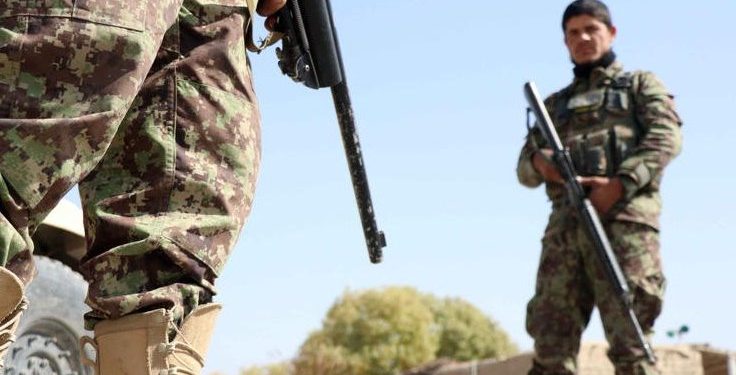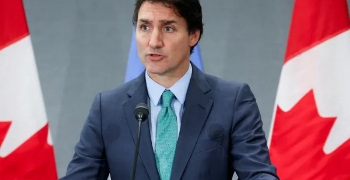Fawaz A Gerges
What are we to make of the reshuffling of relations and shifting alliances in the Middle East? Diplomacy has gained momentum among bitter foes; cracks have appeared among close friends. Regional powers like Saudi Arabia, Iran, Turkey, and Egypt are recalibrating their foreign policies and restoring relations with estranged neighbours. The United States and Russia have renewed their regional rivalry, and China has entered as a new competitor.
The shifting geopolitics could make the Middle East the scene of fierce and truly global competition. But they also could defuse regional rivalries, by bringing together countries that historically loath one another. Much will depend on the main factors behind the new realignments: America’s regional retrenchment, China’s rise, and the Covid-19 pandemic’s adverse impact on already weak regional economies.
US President Joe Biden has made it clear that the Middle East is not a foreign-policy priority for his administration. Whereas former President Donald Trump built an anti-Iran coalition led by Saudi Arabia and Israel, Biden has sought to distance himself from Saudi Arabia, not least by ending US support for the war in Yemen. His administration has resumed diplomacy to restore the 2015 Iran nuclear deal, from which Trump withdrew the US in 2018, and it has kept Turkey and Egypt (two of Trump’s favourites) at arm’s length.
With the complete US withdrawal from Afghanistan this month, Biden has made it clear that the US is disengaging from the region’s cold war as it pivots to Asia and China. Across the Middle East, there is a widespread belief that America is no longer a real partner.
Moreover, while America pulls back, China is increasingly making its presence known in the region. In March, it concluded a major agreement [2] with Iran, promising $400 billion of investment over the next 25 years in exchange for steady shipments of oil and gas. On a tour through Saudi Arabia, Turkey, Iran, the United Arab Emirates, Bahrain, and Oman the same month, Chinese Foreign Minister Wang Yi affirmed his country’s commitment to the region’s security and stability. In an obvious dig at the US, he said that China will oppose foreign interventions and act as an honest broker in resolving persistent conflicts in the region.
Wang also dangled the prospect of a Chinese free-trade agreement that would bring tens of billions of dollars in investment opportunities, by linking China’s Belt and Road Initiative with local development projects. This kind of economic sweetener resonates widely in the Middle East, where youth-unemployment rates, poverty levels, and other economic indicators were dismal long before the pandemic. Over the past 18 months, Covid-19 has exacerbated already severe social crises in many countries.
Under these conditions, it is little wonder that regional dialogue and diplomacy are making a comeback. Most local rulers understand that regime security depends more on satisfying the needs of the population than on sectarian incitement and hatred of the “other.” Hence, last April, Saudi Arabia and Iran held secret talks [4] to discuss how to end the conflict in Yemen, where a Saudi-led coalition has been fighting a war against Iran-backed Houthi rebels since March 2015.
Saudi Arabia has also reconciled with Qatar (which maintains friendly relations with Iran), after having severed all links with its neighbour in June 2017. In a powerful gesture of rapprochement last April, Saudi Arabia’s King Salman formally invited Qatar’s emir, Sheikh Tamim bin Hamad al-Thani, to visit his country.
As a further sign of the broader political reshuffling, the Saudis have also normalised relations with Iraq (an Iranian ally), thus ending three decades of mutual estrangement and hostility. And after years of conflict with Syrian President Bashar al-Assad (another close Iranian partner), Saudi officials recently held secret talks with their Syrian counterparts in Damascus, leading to reports that an agreement on diplomatic normalisation may be forthcoming.
Iran, too, may be on the verge of improving ties with its neighbors, particularly the UAE. Iranian Foreign Minister Mohammad Javad Zarif reportedly plans to visit the UAE soon, after having returned from a diplomatic charm tour through Qatar, Iraq, Kuwait, and Oman in April.
But most important is the possibility of an Iranian-Saudi rapprochement. Although Iran’s moderate president, Hassan Rouhani, is on his way out, the hardliner who will replace him, Ebrahim Raisi, says he sees “no obstacles” to establishing diplomatic relations with the Kingdom. A restoration of ties would curtail the civil strife and proxy wars in Syria and Yemen – two of the greatest humanitarian crises in the world today – and also might bring stability to politically and religiously divided countries like Iraq and Lebanon.
Finally, like Saudi Arabia and Iran, Turkish President Recep Tayyip Erdoğan has gone on a diplomatic offensive to mend his country’s strained ties in the region, particularly vis-à-vis Egypt and Saudi Arabia. After almost coming to violent blows over Libya last year, Turkey now wants to improve economic relations with Egypt and other regional and global powers.
These recent regional realignments can be explained by changing assessments of the balance of power and converging interests. America’s retrenchment has forced regional powers to attend to their own security by mending fences. Regional leaders increasingly recognise that there is nothing to gain from pouring gasoline on a raging fire, as Trump did. Through international diplomacy led by America, Europe,
China, Russia, and Japan, the Middle East can continue on its current path of de-escalation.
Could the international community broker an agreement for a new inclusive security architecture and nuclear weapons-free Middle East, or at least support and encourage the regional dialogue and conflict management that is emerging there? It is no longer wishful thinking to imagine so. Endless conflict may mark the Middle East’s past; but it is not the region’s settled destiny.
The writer is Professor of International Relations and Middle Eastern politics at the London School of Economics. ©Project Syndicate.






































